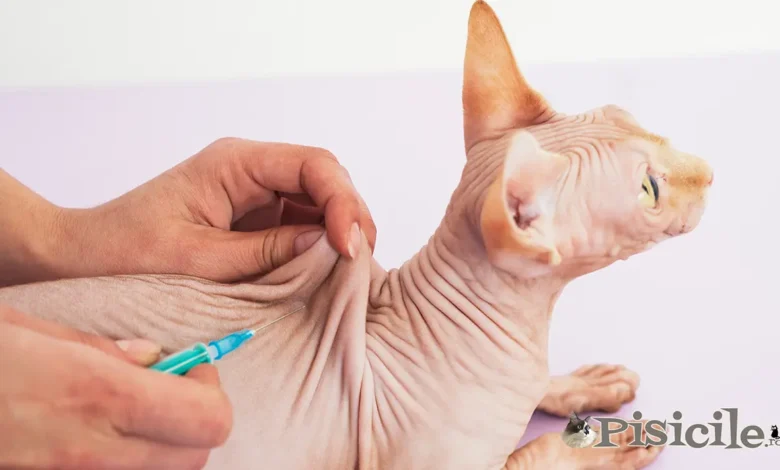
Vaccination of cats is a topic at least as contested as vaccination in humans. On the forums and on the profile groups you will find opinions pros and cons of vaccinating cats.
Of course, veterinarians want to recommend periodic vaccination of your cat, according to a vaccination schedule and depending on the environment in which the cat lives. For example, the antirabies vaccine (for rabies / rabies) is unlikely to be recommended by a doctor for a cat that will stay exclusively in an apartment. It is equally unlikely that an apartment cat will come into contact with a rabid fox in the living room.
Cat owners should not make the mistake of thinking that an apartment cat does not need a vaccine. By vaccination, certain diseases that the cat could contract from humans are avoided. So, even if the cat will only stay in the house, it is not safe from possible diseases that could be prevented by vaccination.
Through vaccination, microorganisms that produce antibodies are introduced into the cat's body. Thus, when the cat comes into contact with the respective viruses, the already existing antibodies are prepared to fight and eliminate the infection.
Most owners who refuse vaccination do so for fear of adverse reactions (side effects) that may occur. These cases are very rare, but there are situations where kittens or young cats do not respond properly to the vaccine. The most common side effects are lethargy and lack of appetite for a few days after the vaccine is given, as well as tenderness in the area where the injection was given.
There are, however, more serious side effects, which may include diarrhea, vomiting, lameness, fever, inflammation of the airways, or lumps at the injection site. These nodules may persist for 2-3 weeks. Cases where vaccination leads to death are extremely rare.
Subject
Vaccine categories and vaccination schedules
Each vaccination schedule is made on the advice of the veterinarian depending on the breed, age, environment of origin, the frequency of infectious diseases in the area or the frequency of canine and feline vagrancy.
For an apartment cat, obviously the same vaccination schedule will not apply as for a cat that lives in the yard and has access to areas with a higher potential for contamination. Your veterinarian will determine which type of vaccine is important for your feline and the frequency of vaccination.
Vaccines are divided into two categories: the essential ones recommended for each cat and the non-essential ones applied according to the individual risk of each cat. Before any vaccination, make sure the cat is healthy and dewormed. Deworming is necessary to ensure maximum immunization for the cat.
Essential Vaccines (Cat Vaccination)
The parvovirus virus – The kitten can be infected even by the mother cat during pregnancy. This disease is generally fatal to kittens and is contagious. Symptoms include fever, loss of appetite, vomiting, diarrhea and, in some cases, it can also affect the brain.
Caliciviroza – This disease causes mouth ulcers, fever, runny nose and flu-like symptoms such as sneezing. It can also affect the joints and lungs, especially in young cats.
Herpes – The herpes virus causes flu-like symptoms such as nasal congestion, sneezing and eye ulcers.
The rabies vaccine – This vaccine protects against the rabies virus, which is transmitted through bites, scratches or contact with the saliva of other infected animals. Annual rabies vaccine is recommended to prevent infection.
Non-essential vaccines
FELV virus or leukemia – This virus is transmitted from cat to cat by direct contact and can cause blood abnormalities, various ailments and even cancer.
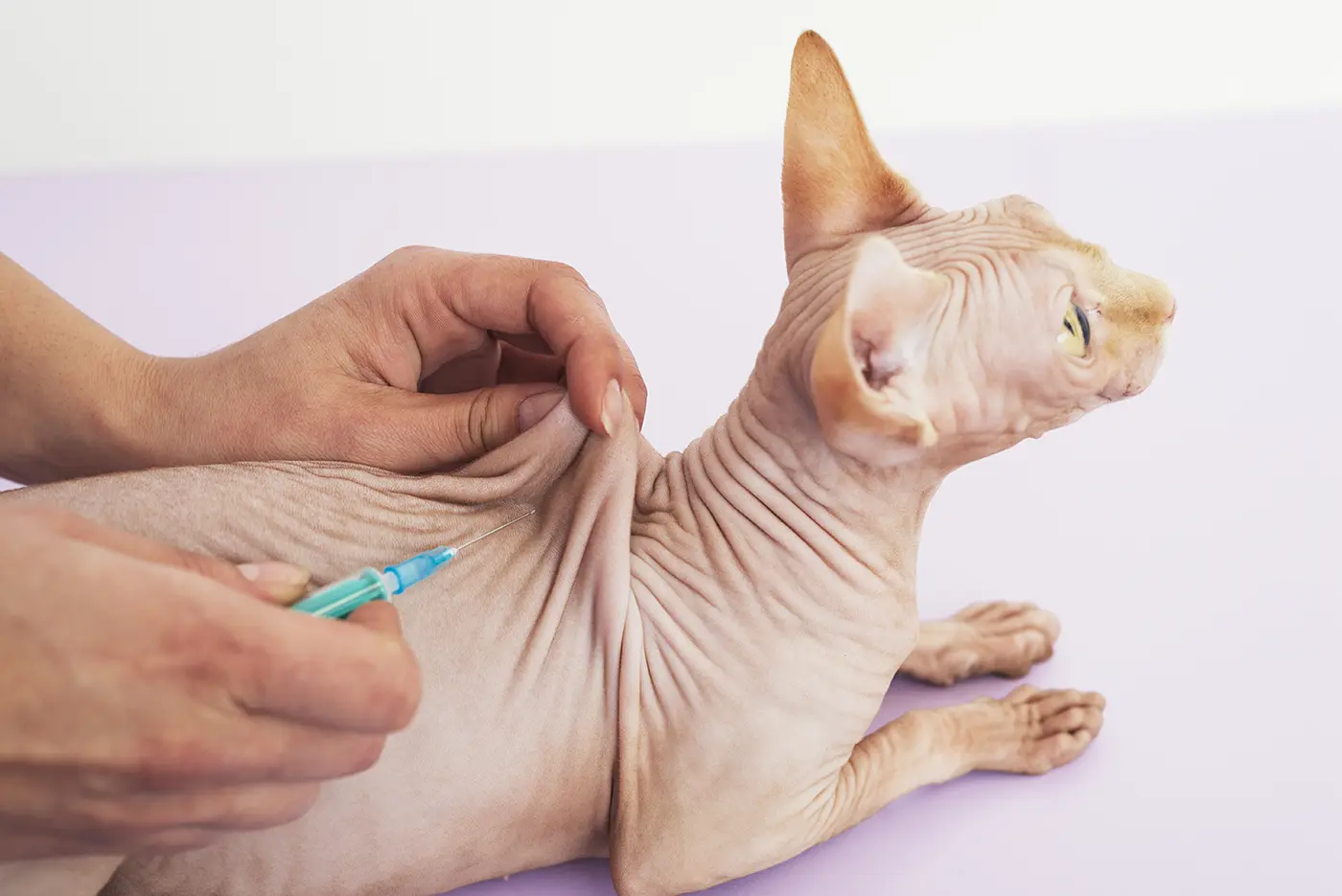
Chlamydia – Chlamydia infection can cause respiratory tract disorders and conjunctivitis. Unfortunately, many cats can become infected before reaching the minimum vaccination age.
Bordetella – Bordetella infection can cause coughing or pneumonia in cats.
Dermatophytosis – This disease is recommended to be vaccinated in sensitive animals, with a high risk of allergies and prone to skin diseases, as well as in the case of recurrent diseases.
At what age can the cat be vaccinated?
The first vaccine is recommended to be administered at 12-16 weeks of age. This will include protection against feline influenza, including feline herpesvirus (FHV) and feline calicivirus (FCV), feline panleukopenia (FPV) and feline leukemia virus (FeLV). A kitten can only be considered vaccinated after receiving the second dose of vaccine. The interval between the two vaccinations will be determined by the veterinarian, as well as the frequency of repeating the vaccines.
At what time interval will the revaccination be done (vaccination of cats)
There are vaccines that do not provide indefinite immunity for cats. For this reason, revaccination will be necessary after some time. The interval and frequency of revaccinations will be determined by the veterinarian according to the age of the cat, the environment in which it lives and the type of vaccine used.
For those who want to travel abroad with their cat, especially by plane, it is highly recommended to find out in advance if the country they are going to requires certain vaccinations for cats. There are countries that only allow pets that are vaccinated according to local law to enter their territory.
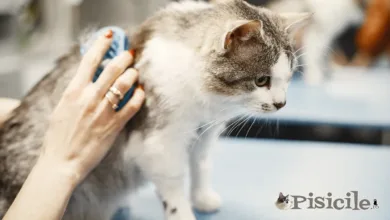
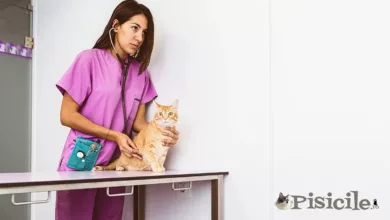
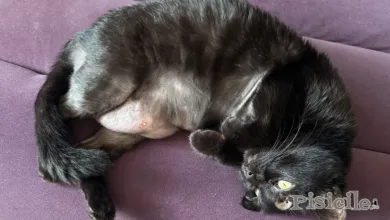
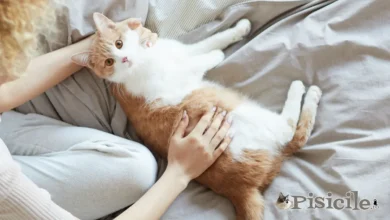
One Comment